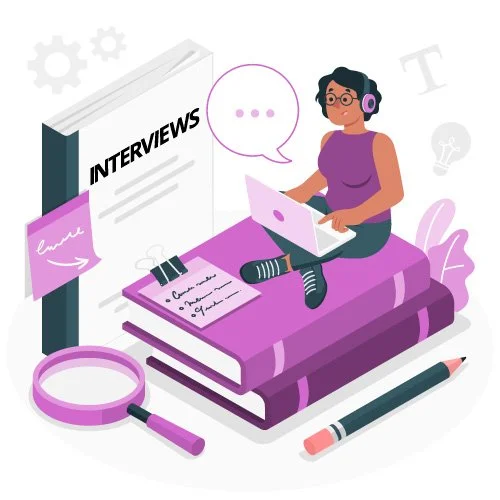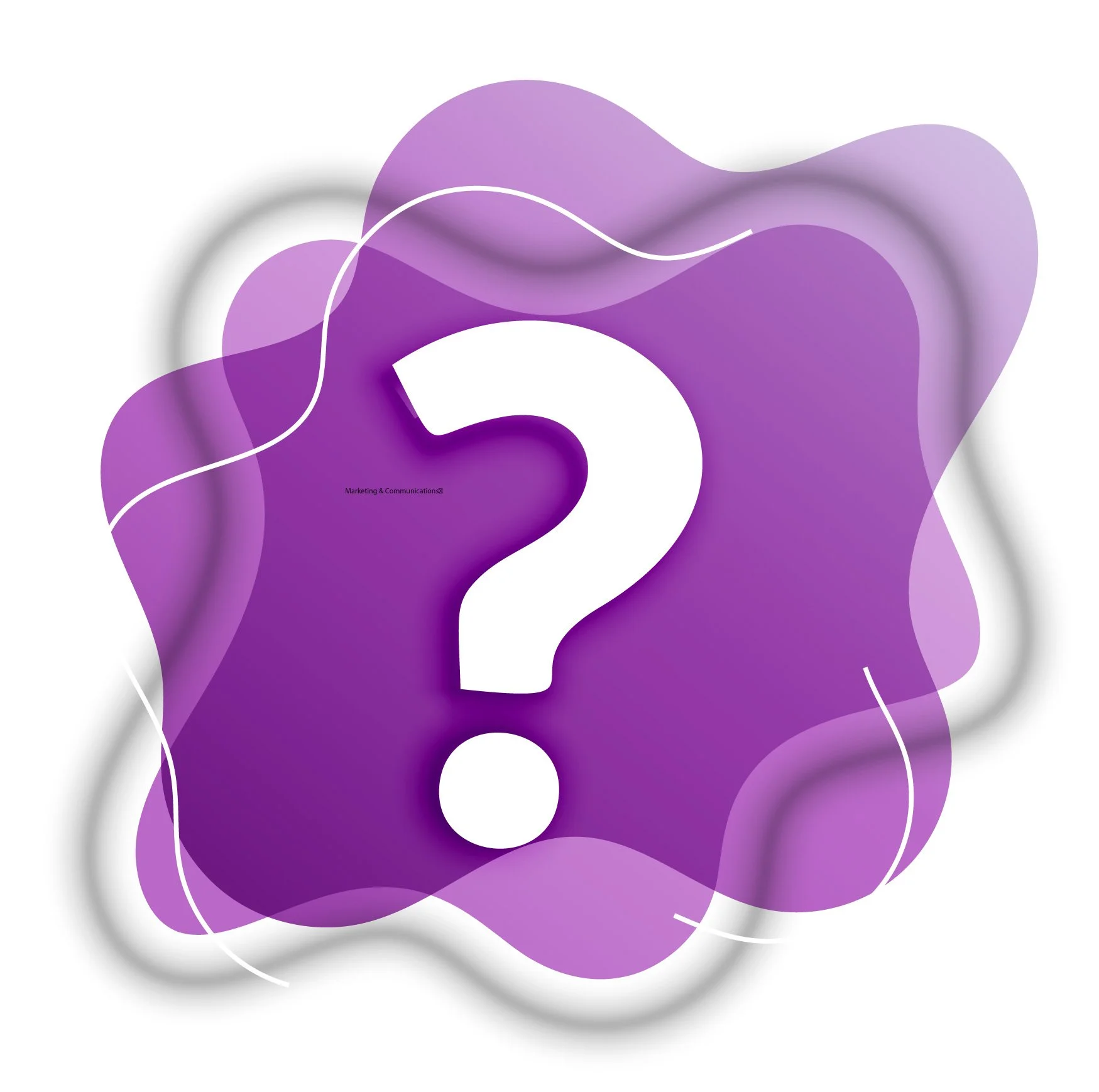INTERVIEW PREP
I had sent out my first 7 applications over a weekend, and I was completely caught off guard when that Tuesday I heard from not 1 but 2 companies inviting me for an interview! To be completely honest, I hadn’t even started the Interview course from the bootcamp. I had heard from so many other teachers that they had submitted hundreds of applications over many months with only a few interviews as a result of their efforts. I was gearing up for the long haul. I put the job search on pause while I frantically prepared for my first interviews.
Start With Your Elevator Pitch
I’ve never heard of an interview that didn’t start with “Tell us a little about yourself.” They are not interested in your childhood, pets, hobbies, or travel experience (unless any of those are actually relevant to the job you would be doing at their company). Your pitch should answer the following questions:
- What has your experience been until now that makes you a great candidate for the position?
- What qualities do you bring to the table? (How can you add value to the workplace?)
- Why are you hoping to work for this company in particular?
This is not the time to mention specific skills or experience details. If they can read it in your resume, then it doesn’t belong in your elevator pitch. This is your chance to show them the bigger picture of who you are and why they will want you on their team, and do NOT introduce yourself as a teacher unless you are applying for a teaching position. It’s a daunting task at first, but maybe reading my pitch will give you some ideas.
It doesn’t have to be that long, and I didn’t memorize it word for word. I made a list of bullet points to guide me so I wouldn’t leave out a key point. I’m certainly no expert on this subject, so be sure to do a little of your own research on elevator pitches. I just know that the expressions and responses from interviewers after my pitch were extremely positive. I saw nodding heads, smiles afterward, and even a “Wow, that was great!” response.
Prepare Responses
You can’t know for sure what the interviewer(s) will actually ask, but you can be ready with planned responses to most of them. There are tons of resources on podcasts and YouTube that will give you insight into the types of questions you are likely to be asked, based on the field you are applying to. Most of the resources I found listed a number of questions in common, but they also each offered unique interview questions from the others. I compiled a long list of questions to prepare for. I wrote out my answer to each question in essay form to make sure I had a cohesive, detailed response. Then I practiced reading them aloud over and over. Once I was comfortable with the response, I created bullet points (1-4 words each) as prompts for each point I wanted to make. See my example below.
Cheat Sheet
I condensed my notes onto a one-page color-coded table. For in-person interviews, you don’t want to be shuffling through pages looking for a specific note. Virtual interviews make this easier because you can have notes open on your screen or on the table in front of you that the interviewers can’t see. I don’t remember actually using it much, but I felt a lot more secure knowing it was there in case my mind went blank.
Practice, Practice, Practice!
I can’t stress this enough. I had my responses all planned out, my cheat sheet in hand, and when my husband practiced asking me the questions I was stammering, disorganized, and tongue-tied. So before putting my husband through that again, I practiced on my own. Do not just do this in your head. Instead, speak the responses out loud. Set a timer for each question for 60-90 seconds. If it goes off before you’ve finished your answer, try it again. The interviewer won’t be using a timer, but the idea is to make sure your answers are thorough and stay on point so you don’t begin to ramble and lose your audience.
This whole prep process is time-consuming but will make a huge difference in your performance at the interview. You also need time to let it all sink in. I worked on this every day for the week leading up to my first interview. I stopped when I felt like I wasn’t making progress. For whichever question I was struggling with, I read the full answer aloud before putting it away. Then right before going to sleep, I read it through a couple of times. Any time I’ve had to study for something, I’ve found that rehearsing right before going to sleep allows my brain to process it so that it sticks with me the next day.
Questions Are Key
You will be given the opportunity to ask your own questions at the end of every interview, and your questions make a difference. If you’re anything like me, the only three questions on your mind will be “Did I get the job?”, “How much will you pay me?”, and “When can I start?” Just to be clear, don’t actually ask any of those questions. You may be the one asking the questions, but you are still being evaluated.
The one exception to this is during the first phone interview with the recruiter. In her L & D Career Club Podcast, Sarah Cannistra says you should never leave a recruiter call without the answers to 3 questions: What are the steps in this interview process? What is the timeline for the interview process? What is the salary range budgeted for this position? There’s no point in going further in the process if the salary range doesn’t meet your needs.
Interview the Interviewer
The interview process helps the interviewer determine if you would be a good fit for the company. The question portion at the end of the interview is your opportunity to show your level of interest in the position and the company. Not asking questions is like ending the interview by saying, “No, I’m good. Just let me know if I get it.” As I said, consider this another part of your evaluation by the interview team. Demonstrate your interest in the role, the department or team, and the company culture. Your questions should reflect your understanding of the role, your initiative, and your interest in contributing value. The question portion is also your opportunity to determine if this company is a good fit for you.
I had a list of about 10 questions prepared, and they were well-received every time. Here are some of the questions I asked that can be applied to any role. I did not come up with these on my own, but I can’t honestly say which podcast, article, video, or book they each came from.
- What does the day-to-day look like for this role?
- How would you describe the company culture?
- Will there be any travel necessary in this role?
- How would you describe the management style for the team/department?
- What would success look like in the first few months in this role?
- What would you say are the biggest challenges for someone in this role?
- How is performance measured?
- What sort of career development opportunities are available for someone in this role?
- What is the timeline and next steps in this process?
The following questions are more relevant to ID roles but could be adapted to other careers:
- What are the other roles on the team?
- What sorts of projects would I be working on?
- What is your team’s preferred process/system/model?
- Would I be involved in training implementation?
- Are there any tools your team uses that I should learn in preparation?
There is no need to memorize your questions. Just have your list prepared. I found a number of these were answered during the interview itself, so I could check them off the list and focus on the remaining questions. About 1/3 (20 minutes) of each interview I had was devoted to my questions for the team.





